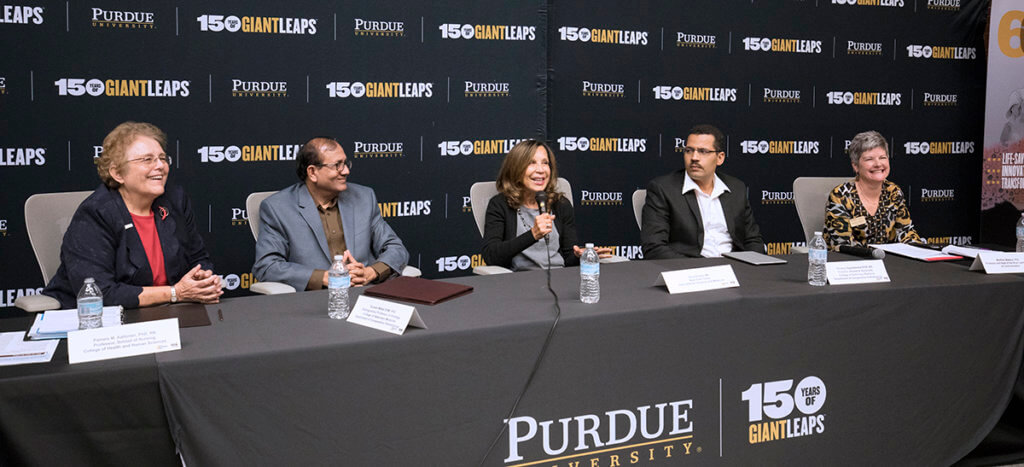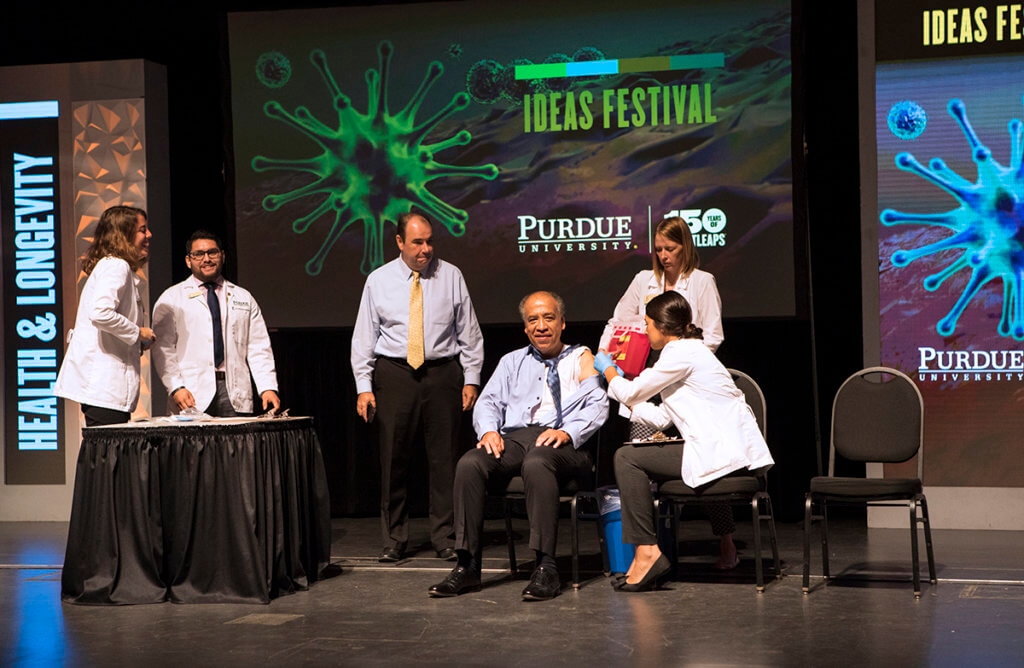
Gina Kolata, author of “Flu: The Story of the Great Influenza Pandemic of 1918,” recounted key details of the 1918 flu pandemic during her talk addressing the topic, “What IF the Next Pandemic is Inevitable?” on September 23 in Loeb Playhouse. Characterizing her book as a medical detective story, Kolata shared how the deadly 1918 flu strain affected young, healthy individuals and spread rapidly across the world. It is estimated that about 500 million people or one-third of the world’s population became infected with the virus. Her remarks facilitated discussion of how research on the 1918 outbreak offers insights regarding the next potential pandemic.
The event was part of Purdue’s Ideas Festival, the centerpiece of Purdue’s Giant Leaps Sesquicentennial Campaign, which is a series of events that connect world-renowned speakers and Purdue expertise in a conversation on the most critical problems facing the world.
Kolata is a two-time runner-up for the Pulitzer prize for her writing at The New York Times, where she works as a science and medicine reporter. The author of six books, Kolata is a graduate of the molecular biology program at M.I.T. and received her master’s in applied mathematics from the University of Maryland.

Following the talk, as a way of demonstrating first-hand the importance of vaccination in flu prevention, Purdue Veterinary Medicine Dean Willie Reed; Dean Marion Underwood, of the College of Health and Human Sciences; and College of Pharmacy Dean Eric Barker all rolled up their sleeves and received their annual flu shots on stage. Also that afternoon, a flu shot clinic was available in the foyer outside of Loeb Playhouse for faculty and staff who wanted to get a flu shot.
The focus then shifted to Lynn Hall for the remainder of the afternoon, as a panel of experts took up discussion of the topic, “The Current and Future Role of Vaccination in Global Health.” The panel was moderated by Dr. Harm HogenEsch, Purdue Veterinary Medicine associate dean for research and professor of immunopathology. Joining Kolata on the panel were Pamela M. Aaltonen, professor emeritus from the Purdue School of Nursing; Marifran Mattson, professor and head of Purdue’s Brian Lamb School of Communication; and Suresh Mittal, PVM distinguished professor of virology, and Ekramy Sayedahmed, post-doctoral research associate, both of the PVM Department of Comparative Pathobiology. Prompted by questions from Dr. HogenEsch and audience members, the panelists engaged in a robust discussion about flu vaccines, pandemic outbreaks, vaccine hesitancy and anti-vaccination concerns, as well as communication strategies related to public health.
A reception in the Lynn Hall Veterinary Medical Library concluded the day’s schedule, providing an opportunity for guests to meet and interact with Kolata and members of the panel.
The College of Veterinary Medicine is focusing on the Ideas Festival’s theme of “Health, Longevity, and Quality of Life” during the month of September, which is the featured month at Purdue for celebrating PVM’s contributions to 150 Years of Giant Leaps. The September 23 invited talk by Kolata was co-sponsored by PVM, the College of Health and Human Sciences’ Public Health Program, and the IU School of Medicine-West Lafayette.
Click here to watch a recording of Kolata’s talk.
